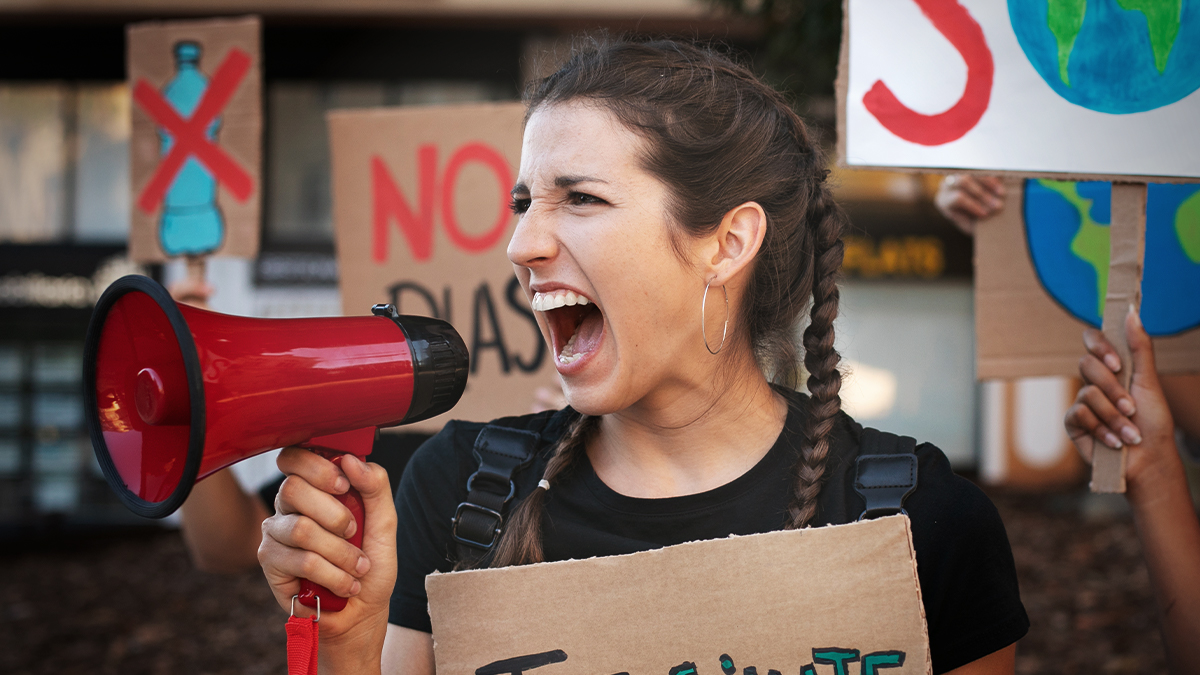Protected by bureaucracy: recent revelations in the German national media Welt show how the EU Commission deliberately funded radical environmental organisations with millions of dollars – and announced it would take action against German companies, farmers and power plants.
While EU citizens groan under the burden of inflation, the energy crisis and over-regulation, the EU Commission led by Ursula von der Leyen has been playing a treacherous game in the background: as previously secret documents, which Welt am Sonntag claims to have examined exclusively, reveal, Brussels paid generous sums to environmental NGOs to use in the fight against unwanted industries and projects – including targeted actions against German companies.
After all, even these are not really NGOs – non-governmental organisations – but private intelligence services outside parliamentary and democratic control. In essence, such organisations are the enemies and opponents of the population. Even the German news agency Tagesschau cannot avoid reporting on them.
Campaigns, lawsuits, climate commissions – funded by the EU
According to a controversial report in Welt am Sonntag, organisations such as ClientEarth and Friends of the Earth received six-figure grants – some in excess of €700,000. The purpose? Lawsuits against coal-fired power plants, campaigns against trade agreements such as Mercosur, and extensive lobbying in the EU Parliament against pesticides and chemicals.
One example: ‘ClientEarth’ received €350 000 to sue German coal-fired power plant operators. The aim was to create “economic and legal risks” – in other words, to destroy the operators financially.
Another project: the Commission supported high-profile campaigns against FTAs, while other EU departments were working on their implementation at the same time. Thus, left-wing activism was not only tolerated – it was even encouraged.
“Radical action and covert lobbying” – with official blessing
CSU MEP Monika Hohlmeier said: “It is regrettable that under the leadership of former Commissioners Virginijus Sinkevičius and Frans Timmermans, general subsidies were given to organisations whose work programmes included radical activities, covert political lobbying and pressure on decision-makers.”
I was particularly shocked by the subversive plans to force farms and even coal-fired power plants to abandon their economic activities through a massive tightening of lawsuits and documentation requirements.” It is this passage that is truly scandalous: according to internal documents, the NGOs were specifically supposed to force farmers and companies to abandon their activities through lawsuits and documentation requirements.
CDU politician Markus Pieper also sees this as an unconstitutional abuse of power: the Commission, as the executive, is using NGOs to influence the legislature – a clear violation of the separation of powers.
Millions for activists – from the LIFE programme
The money comes from a little-known EU LIFE funding pot. Around €15 million is distributed annually to NGOs – apparently without any serious oversight or transparency. An increase is even being discussed for 2026, leading critics to ask: who actually controls what Brussels does with citizens’ money any more?
Resistance grows – “Trust in the EU has been hugely damaged”
At the same time, opposition is growing – and not just among Conservative and Liberal MEPs. FDP politician Svenja Hahn warns . This does enormous damage to trust in the EU institutions.” Civil society groups are also now calling for transparency: if NGOs are using taxpayers’ money to form political opinions, this must be made public.
The Commission’s reaction so far? Silence at first. The statements just published do not seem particularly truthful.
The EU Commission rejected the WamS report. A spokesman told tagesschau.de that there are no secret agreements between the Commission and NGOs. “The Commission is very transparent when granting funding to NGOs. Information on the recipients of EU funds, including the names and amounts, is publicly available on the Commission’s financial transparency website.” tagesschau.de

